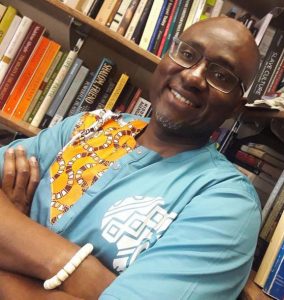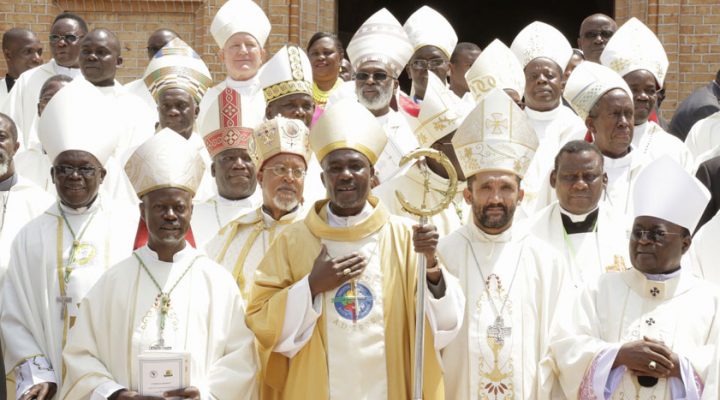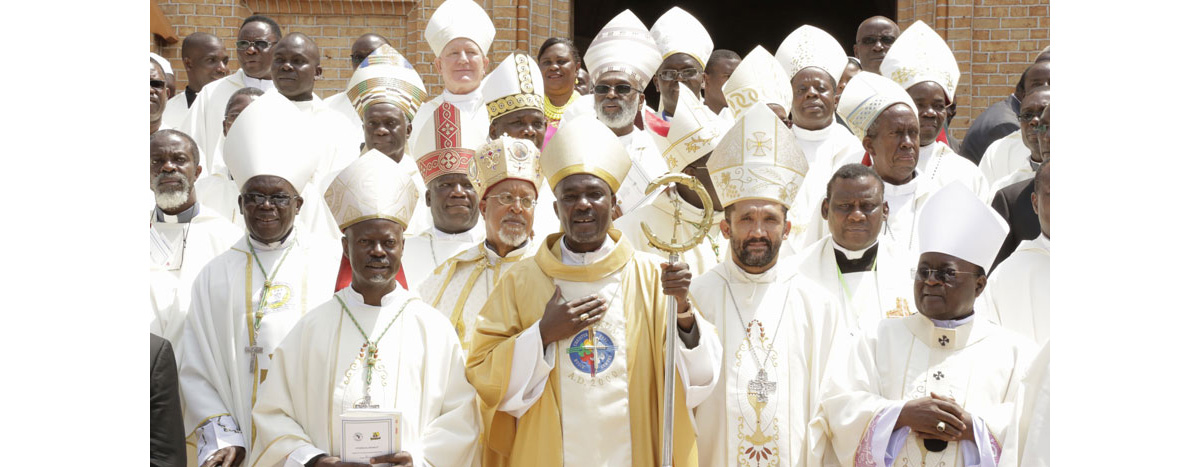A rebellion against Pope Francis is brewing in Africa.
On Jan. 11, African Catholic bishops, gathered at a conference in Accra, declared the Vatican’s recent proposal to allow priests to offer non-liturgical blessings for same-sex couples is contrary to their belief and is not something they will allow.
“This declaration has caused a shockwave, it has sown misconceptions and unrest in the minds of many lay faithful, consecrated persons and even pastors and has aroused strong reactions,” the bishops said. “The cultural context in Africa, deeply rooted in the values of the natural law regarding marriage and family, further complicates the acceptance of unions of persons of the same sex, as they are seen as contradictory to cultural norms and intrinsically corrupt.”
Meeting under the aegis of a Symposium of the Episcopal Conference of Africa and Madagascar, the bishops were responding to a new Vatican document titled “Fiducia Supplicans,” released in December. While not allowing priests to officiate same-sex weddings or unions, the document allows priest to offer routine non-liturgical blessings to same-sex couples.
That is too much for those who oppose homosexuality on religious grounds and not enough for those who seek broader inclusion of LGBTQ people in the church.
The African continent is known for its conservative and traditional views on sexuality and marriage.
“In our context, this would cause confusion and would be in direct contradiction to the cultural ethos of African communities.”
“We, the African bishops, do not consider it appropriate for Africa to bless homosexual unions or same-sex couples because, in our context, this would cause confusion and would be in direct contradiction to the cultural ethos of African communities,” the bishops said.
That echoes calls from political leaders in Africa, such as Evariste Ndayishimiye, president of Burundi, who said, “People of the same sex who marry in this country should be taken to a stadium to be pelted with stones, once discovered.” He followed that up in a radio broadcast on Dec. 29 warning Burundians living abroad who practice homosexuality “not to return home.”
Reacting to opposition not only in Africa but some other parts of the world, Pope Francis, in a report published by the Catholic News Agency, said opponents of the document showed a poor understanding of the situation.
“Sometimes decisions are not accepted. But in most cases, when you don’t accept a decision, it’s because you don’t understand,” he said.

Stan Chu Ilo
Stan Chu Ilo, a research professor of world Christianity and African studies at the Center for World Catholicism and Intercultural Theology at DePaul University in Chicago, told Baptist News Global there’s a misconception about “Fiducia Supplicans” that needs to be clarified.
“I am a theological adviser to both the bishops of Africa and the dicastery in Rome. First, the clarification is that the pope is not saying that people should bless same-sex unions. What the pope is asking, and this is very important to clarify, is to bless persons in same-sex unions. So it is not to bless their union, it’s to bless individuals within that union so that they may do God’s will.”
However, he agrees “totally” with the African bishops on their position given the evident gap in perception “Fiducia Supplicans” presents.
“There’s what you call analogy,” he said. “When you are blessing persons in same-sex union, no person who’s looking at you as you are doing that blessing is going to make a distinction (in you saying) OK, I’m blessing the persons and not their union or I’m blessing their union and not the persons. So, it is the analogical aesthetics that is problematic because in the church as a priest I bless everyone at the end of the mass, during the mass.
“Every day our job as ministers of God is to give. Like the Lord says, you receive without pay, give without pay. So, we bless people,” he said. “To then isolate or designate some people for blessing — same-sex persons, those in irregular marriage, … divorced people, separated people, those in polygamous marriages — the African bishops say this is very confusing and scandalous because the question for most of us African theologian ministers of God’s word and for me personally … is that the clarification has not been clearly made about the sinfulness of people who are already in same-sex union.”
His perspective, which appears to be the perspective of the African bishops, is that homosexuality is by definition sinful and therefore should not be blessed.
“The clarification must be made that those who are living in same-sex marriage, are living in a sinful relationship.”
“Same-sex persons, like heterosexual persons, all of us, need blessing, but the clarification must be made that those who are living in same-sex marriage, are living in a sinful relationship,” he said. “And so what they should be given is not the recognition of affirmation through blessing for them in this unique way.”
He added, “I have blessed same-sex people before, but I did that in the context of someone coming, confessing saying, ‘I really feel bad I find myself in this kind of relationship and I need God’s grace to break the yoke.’ So it’s very important to understand these distinctions.”
Further, Ilo believes the controversy has been exacerbated because “there was no African who was involved in the drafting of the document, and Africa has the highest number now of Catholics in the world where the number is growing every day. There was no consultation, so you just come up with a document that then was not passed on.”
Similar issues have arisen among the United Methodist Church, for example, with the American wing of the UMC being more open to LGBTQ inclusion than the African wing of the church.
“Sometimes people neglect Africa and think Africa doesn’t matter,” Ilo said. “That’s why this reaction by the bishops of Africa must be commended. That they were able to stand up and went to the Holy Father and said, ‘We are in communion with you, but on this matter, it will cause scandal. It’s causing scandal already.’”
The result in some parts of Africa is that devout Catholics now believe they can question the pope, he said.
“If people can choose their sexuality and if there’s no objective moral order, if there’s no common understanding of what it means to be human or gender, if these are just constantly shifting definitions so you can construct your own identity, it makes it even more difficult for people in the faith teaching young ones what’s right and wrong,” he said.
Anthony Akaeze is a Nigerian-born freelance journalist who lives in Houston. He covers Africa for BNG.
Related articles:
Vatican’s new stance on blessing same-sex couples draws praise and ire


